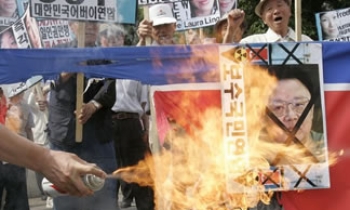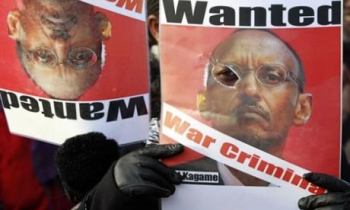Few in the public view the media as the champions of their cause.
Yet it is the press which time and time again is forced to bear the legal costs of ensuring the public has a right to know.
The most recent examples were two rulings last week, ironically by the same judge on the same day, in completely unrelated murder cases.
Court of Queen's Bench Justice Scott Brooker allowed the media -- and the public in general -- to attend the first week of the murder trial of a Medicine Hat teen.
Brooker's logic was that while jurors had yet to be selected and a leak of information from a voir dire, or trial within a trial, on the admissibilty of evidence could taint them, closing the court wasn't the solution.
Instead he agreed with lawyers for several media outlets a less draconian answer was warranted.
Brooker imposed a publication ban on the contents of the admissibility hearing until after jurors reach a verdict in the trial of the teen charged with killing her family.
That means if anything occurred during the week-long court process which is of interest, or importance, to members of the public, it will eventually come out through the press.
The Queen's Bench judge said closing the courtroom and permanently prohibiting publication of certain evidence would erode public confidence in the judiciary.
"Secrecy ... leads to misunderstanding, mistrust and ultimately a lack of respect," Brooker said.
He echoed those same sentiments in a written ruling released the same day striking down the law which barred publication of the bail hearing of then-accused murderer Michael White.
The law, challenged by a group of news organizations including Sun Media, automatically prohibited publishing details of bail hearings where an accused person sought a ban.
But Brooker -- who has given Parliament a year to come up with a suitable alternative which will permit a publication ban where the need for one can be established -- struck the law down.
He said the automatic ban "leads to the potential for public speculation, misunderstanding and mistrust of the justice system," because it hindered public awareness and scrutiny.
News organizations, while driven by the bottom line, have a place in ensuring average Canadians know what's going on in our courts of law, Brooker noted.
"The media, albeit a private and often for-profit enterprise, is the public's eyes and ears to the formal justice system," he wrote.
"The public depends upon the media for information about the court process."
But should the media be forced to continually bear the costs of challenging laws, or fighting bids for publication bans in a nation which constitutionally guarantees freedom of the press?
Or should our politicians take a more proactive role in examining the general issue of lifting the veil of secrecy often dropped over judicial proceedings?
If the answer to the latter is "no," then our paliamentarians are basically saying the legal fees news organizations are paying to get the story should be a cost of doing business.
But in Canada, the media doesn't engage in cheque-book journalism.
We don't pay busty bartenders thousands of dollars for their tales of princely encounters and we









